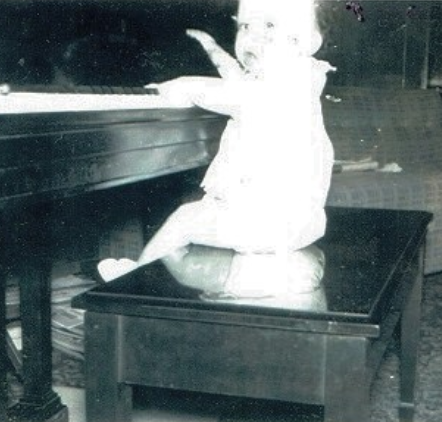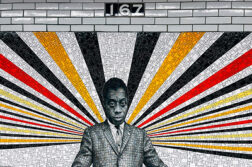
I WAS BORN in 1960 in the segregated south in a “Colored” hospital on the Black side of town. My parents were both on the piano faculty at Fisk University, one of the first Historically Black Colleges and Universities founded after the Civil War. My father also directed the Fisk Jubilee Singers, who were known primarily for their a cappella renditions of Negro Spirituals. My mother served as piano accompanist for the group, and we would travel together as a family on numerous concert tours throughout the country.
Both of my parents had dreamed of having careers as concert pianists. My father had attended the Juilliard Preparatory School as a youngster, then returned after serving in World War II to pursue a master’s degree. My mother had attended Oberlin Conservatory, where she received her second bachelor’s degree—in music—after having received a BA from Fisk. Both of my parents had attended Fisk as undergraduates, but in their late thirties, when they both returned to teach, they decided to get married.
My maternal grandmother had died just before my mother learned that she was pregnant with me. She called it the tragedy of her life that her mother didn’t have the chance to see me. She was still in mourning when I was born, and she really didn’t have much interest in being responsible for a small child. I spent the majority of my formative years with babysitters. When it was discovered that I was a child prodigy on the piano, the grind of daily practice began. My ear was so well developed that I could play back pieces after hearing them once. I was doing so well in my piano lessons that no one noticed that I couldn’t see the sheet music. I wouldn’t get glasses until I was ten.
The public school to which I was assigned was in a poor, rough neighborhood. My college professor parents demanded that I speak correct English, but my schoolmates spoke a hard, profanity-laced slang, which I had to learn to speak in order to avoid being bullied. I came home in tears almost every day, but my father chose to ignore my emotional distress. “We’re taxpayers,” he bellowed as justification for refusing to enroll me in a safer private school. Forced integration came when I was in the sixth grade, but the presence of new white students did nothing to mitigate the bullying I endured. I decided to put my energy into my friendships at the music conservatory on the white side of town, where I was with polite, respectful white students who appreciated my talent.
It wasn’t until I was an adult that I came to realize just how much American racism was affecting my parents. They had traveled and performed abroad, but as they both had widowed mothers in the U.S., they were not able to relocate there. My mother became very unhappy and even turned to alcohol to ease her pain. There was nothing I could do to please her. But when I appeared as a piano soloist with the Nashville Symphony at age thirteen, my father suddenly became interested in me and my potential to become a concert artist.
Having two older, unhappy parents and no siblings, my need for love was enormous. As my mother’s drinking intensified, my father’s denial and refusal to protect me made a huge impact. If I couldn’t rely on men for love or protection, then what were they good for? So I made the decision to look to women to fill this bottomless need for love and affection. As it turned out, the first woman to hold me to her naked body was a part-time prostitute. I had no concept of what love was and assumed that sex was the end-all and be-all.
As a teenager, I performed as a piano soloist throughout the U.S., South America, and the Caribbean. Eventually I came to New York to study at Juilliard and continued to search for love in women’s bars. My second year at Juilliard, I met the woman who taught me what love was—the woman with whom I thought I would share the rest of my life, until she was diagnosed with breast cancer four years into our relationship. She died two years later.
Thus began my relationship with a ghost.
My concerts and travels took me to Europe, where I lived for many years. I kept a journal to document my experiences. When I had my own encounters with racism and sexism, I wanted to document those, too. I recorded the experience of having a contract with a top record company, which turned out to be a tale of betrayal and heartbreak. There are encounters with celebrities, including Marian Anderson, Isaac Hayes, Roberta Flack, Spike Lee, Cyndi Lauper, Wynton Marsalis, Coretta Scott King, Vladimir Horowitz, Whitney Houston, et al. There was also the story of my so-called friendship with a famous gay male Russian pianist who had a disturbing attraction to under-age boys.
I finally decided to publish the first book of memoirs in 2019, titled Practicing for Love: A Memoir (Dorrance Publishing). The sequel will be published later this year.
Nina Kennedy is a world-renowned concert pianist, orchestral conductor, and award-winning filmmaker. She holds a master’s degree from the Juilliard School where she studied with Leonard Bernstein. Kurt Masur acted as her conducting mentor during his tenure as music director with the New York Philharmonic and L’Orchestre National de France. For twelve years she lived and performed in Europe, residing in Amsterdam, Vienna, Cologne, and Paris.






